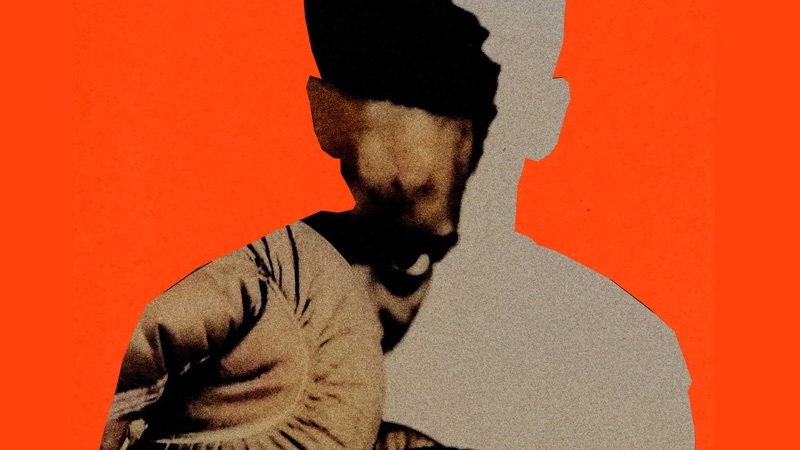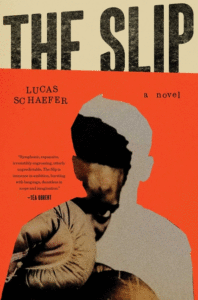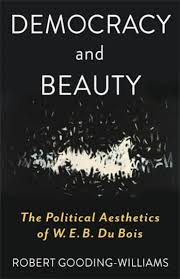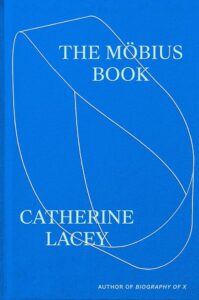
Our cauldron of compelling reviews this week includes Ron Charles on Lucas Schaefer’s The Slip, Sam Worley on Susan Choi’s Flashlight, Safiya Sinclair on Hala Alyan’s I’ll Tell You When I’m Home, Becca Rothfeld on Robert Gooding-Williams’ Democracy and Beauty, and Sarah Moss on Catherine Lacey’s The Möbius Book.

“Here’s a novel so pumped up and shredded it can’t possibly sit still on a shelf. Long before its official release on June 3, The Slip was already bouncing down the ramp with both fists punching the air. I spent most of the week not just reading this story but cheering it on in a state of unhinged excitement … So much is packed in that The Slip feels more like a three-ring circus than a 12-round match. If you like your fiction neat and ruminative, stay away from this sweaty, outrageous book.
…
“In Schaefer’s narration, these shenanigans are wildly, transgressively hilarious, reminiscent of the brash sexual comedy of Philip Roth’s early novels. But The Slip is also exploring larger themes about the confounding nature of race in America and the human urge to slide into another identity. In fact, during what Schaefer calls ‘the darkening of Nathaniel Rothstein,’ the novel is just warming up.
…
“Despite its contemporary pulse and structural intricacy, Schaefer’s novel plays off older stories, too. He’s channeling the irrepressible energy of Henry Fielding. One outlandish strand of the plot has its roots in Shakespearean comedy. And Terry Tucker’s Boxing Gym presents the high stakes of Hemingway’s bullring, an existential arena where pretense and fakery are violently exposed. Honestly, I haven’t felt quite like this about a book since I was dazzled by Jonathan Franzen’s The Corrections almost 25 years ago. But despite his equally capacious reach, Schaefer is no Franzen wannabe. If anything, he’s looser, confident enough to be sweet, and despite his richly comic voice, this satiric tongue never develops fangs.”
–Ron Charles on Lucas Schaefer’s The Slip (The Washington Post)
“Characterized, like Louisa’s memories, by what’s absent as much as by what’s present, Flashlight is obsessed with what we know and what we don’t, what we keep from one another, and what we keep from ourselves—and the stakes of all this alienation.
…
If Flashlight marks a return to earlier thematic concerns after the swerve that was Trust Exercise, one thing that hasn’t changed is what an outlandishly talented writer Choi is, her prose possessing an iron confidence in its own beauty. She favors complex, lightly punctuated sentences whose payoff comes late. Choi’s analysis of her characters’ emotional experiences is so eloquent that it can hinder—I sometimes wished she would leave more room for readers to interpret, even misinterpret, her characters and their actions, rather than so fluently laying it all out. Much of the thrill of Trust Exercise was that it didn’t just take the ambiguities of memory as its subject—by ceding so much of the floor to its messed-up characters, it inscribed those ambiguities into its very structure.
At the same time, Trust Exercise was direct in its indirection; as soon as you hit the book’s second section, you knew something was afoot. What propels Flashlight is a more ambient sense that not everything is as it seems, enhanced by an unnerving series of doubles and echoes. Choi seems to be exploring, if subtly, the limitless number of paths a person can take, the manifold consequences of choices that seem inconsequential, the ways interpersonal disputes can widen into irretrievable losses, the awkward intersections of agency and fate: If only this, if not for that. The book’s many omissions are challenging at times. But Choi is a writer who can be trusted to have a plan, and she sews the narrative up with a conclusion that’s almost impossibly heartbreaking—about which the less said the better. Some things you can see coming from miles away. But life, we’re reminded, retains its ability to surprise.”
–Sam Worley on Susan Choi’s Flashlight (Vulture)
“At its core this is a book about longing: for motherhood, for a return to the Levantine homeland that shaped her family history, for a sense of belonging in America that never arrives, for a personal unraveling that may or may not come, for a sense of safety in her marriage that never resolves. Alyan speaks to different versions of herself across time, as though every moment in her history were happening concurrently, were still happening, playing and replaying itself, even now. The story must keep going for its teller to keep living.
…
“Here lies the book’s crucial reckoning: how to maintain a Palestinian identity while living far away from Palestine, how to journey toward a home that exists only in body, memory and story. She likens this identity to the lyrebird, ‘said to be the only creature able to communicate with all others.’ A symbol for the poet, a voice of the Levantine diaspora, even a ‘metaphor for surrogate,’ as she writes on an index card in her studio, ‘it carries what it hears. It returns it to the world.’ Interpreting stories is itself a kind of mothering.
…
“Just as Scheherazade’s stories were not hers alone, but ‘gathered over centuries and dozens of countries, by authors and philosophers and magicians and teachers,’ so too is the act of mothering a necessarily collective one. I’ll Tell You When I’m Home shows the power of even a single narrative to resist the deliberate erasure of a people and their homeland, the violence of colonization. ‘How to explain being a Palestinian child nowhere near Palestine?’ Alyan writes. ‘You are trained from childhood on nostalgia, on history, on witnessing. You, after all, are the proof: that others have endured. That something once existed.’ This is how a history, and a people, survive.”
–Safiya Sinclair on Hala Alyan’s I’ll Tell You When I’m Home (The New York Times Book Review)

“In the poem ‘Socrates and Alcibiades,’ the German Romantic writer Friedrich Hölderlin asks why the famed Athenian philosopher fell in love not with a fellow genius, but with a handsome youth. Although he was renowned for his looks, Alcibiades was notoriously rash and silly. Shouldn’t Socrates, of all people, rise above such temptations? Shouldn’t he prefer sagacity to charm? On the contrary, Hölderlin concludes, ‘the wise, in the end, often bow to what is beautiful.’ There is a broader lesson in this poetic parable: Beauty, the verse suggests, can be more powerful than argument.
The philosopher Robert Gooding-Williams, a professor at Yale, attributes a similar view to the 20th-century sociologist and thinker W.E.B. Du Bois. In Democracy and Beauty: The Political Aesthetics of W.E.B. Du Bois, Gooding-Williams argues that beauty ‘is a political force capable of advancing the struggle against white supremacy.’ He makes his case by presenting a clear and convincing, if somewhat dry, account of Du Bois’s views on democracy, racism and, finally, beauty.
…
“The most philosophically exciting parts of Democracy and Beauty lay out the surprising ways that disruptive beauty can promote the sort of democracy that fosters crowds. American racism is rooted, as Du Bois memorably put it, in ‘a vicious habit of mind’ that is immune to reasoned rebuttal. Racism, he wrote, ‘is not based on science, else it would be held as a postulate of the most tentative kind, ready at any time to be withdrawn in the face of facts.’ But Gooding-Williams notes that beauty can achieve what debate cannot, precisely because it is equipped to disrupt and unsettle. The argument does not rest on the familiar (and vigorously disputed) claim that art (and, in particular, fiction) cultivates empathy, but rather on the fresh suggestion that beauty can reveal the visceral repugnance of white supremacy by jolting its adherents out of their preconceptions.”
–Becca Rothfeld on Robert Gooding-Williams’ Democracy and Beauty: The Political Aesthetics of W.E.B. Du Bois (The Washington Post)

“From her debut, Nobody Is Ever Missing, to 2023’s Biography of X, Catherine Lacey’s work has tested the forms and fabric of the novel with brilliant unease. In The Möbius Book, her experiment crosses the blurred border of fiction into something else. Life writing, autofiction, memoir? Whatever you call it, The Möbius Book is deeply serious and engrossingly playful, and it lavishly rewards serious, playful attention.
A Möbius strip is a length of any material joined into a loop with a half twist. It’s an uncanny shape, common and obvious, easily created and yet awkward to describe geometrically. For literary purposes, a Möbius is interesting because there’s intricate structure and constraint but no ending. It goes around again, mirrored with a twist. Lacey’s book takes this literally, the text printed from both ends, with memoir and fiction joined in the middle. Twin stories experiment with plotlessness and irresolution, while remaining aware of the way fiction attaches itself to linear plot and reverts to romance and quest. Characters find and lose love, find and lose meaning.
…
“Lacey asks large questions about interiority, especially with regard to the subject of Christian faith. For some readers, it may be an alien idea that the sharply modern intellectual rigour on display here could be combined with religious conviction. How can a narrator who can play off Proust against Gillian Rose seriously expect to find consolation in the old myths about the baby in the manger and the man rising from death? It’s a question Lacey acknowledges, partly as unanswerable
…
“Inevitably, the fictional half of this book refuses many of the satisfactions of a novel. Like a miniature homage to WG Sebald’s Austerlitz, the present action is mostly the recounting of past events, so that most of the characters, times and places appear only through a conversation between friends. There are complicated, triangular relationships in the background, between characters who never quite take shape, whose voices are only—and unreliably—recalled. Third-person narrative always calls into being a narrator, another layer of artifice, and here the slippage between present, past and past historic tenses also constantly reminds us that this story is at once engaging and not real. The questions are constant, implicit, teasing, elaborated rather than answered in the dark mirror of life writing. They don’t go away. You can go round again.”
–Sarah Moss on Catherine Lacey’s The Möbius Book (The Guardian)

